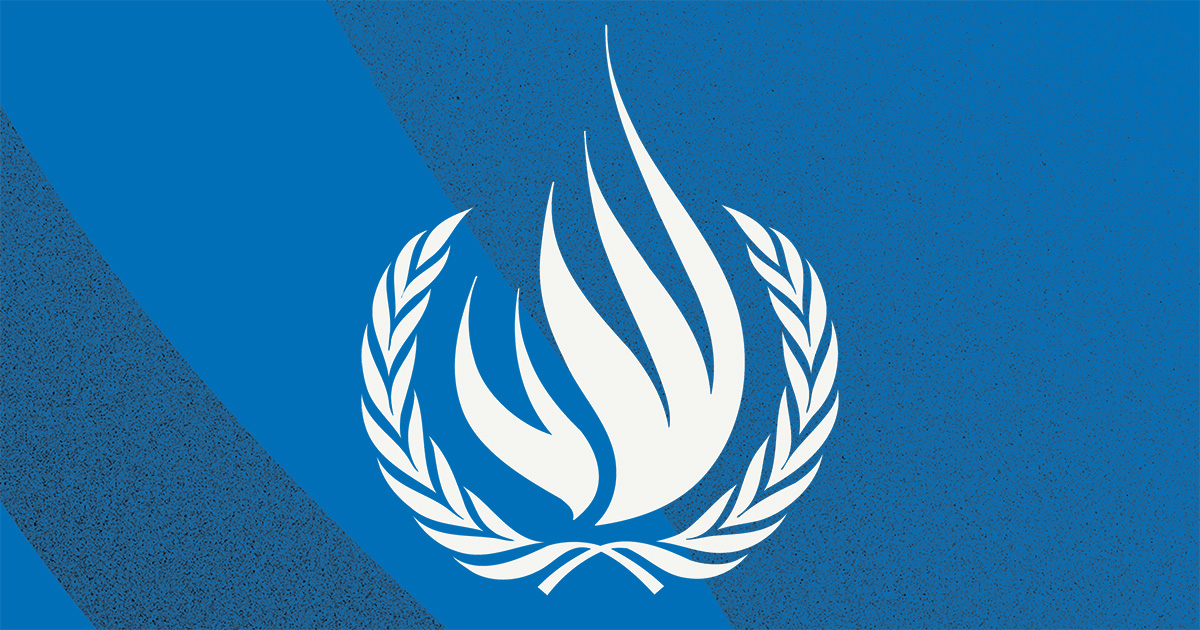
DELIVERED BY
Volker Türk, UN High Commissioner for Human Rights
AT
Vienna Conference on Combatting Trafficking in Human Beings
LOCATION
Vienna, Austria
The trade in people and exploitation of them for profit is one of the oldest and most heinous global crimes.
In the 21st century, trafficking in persons continues to thrive, particularly where armed conflicts, economic recession, health emergencies, food insecurity, climate change-induced disasters and other humanitarian crises exacerbate existing underlying vulnerabilities.
It is considered by some measures to be the third most lucrative illegal activity worldwide. No region is spared from this scourge.
According to the latest global estimates, there are 49.6 million people being forced to work or marry on any given day – 25 per cent more than in 2016.
This is the story of millions of men, women and children, exploited into sexual exploitation, forced labour, forced marriage, drug dealing, domestic servitude, the removal of organs, and other horrors.
Refugees and migrants fleeing persecution or violence, or in search of a better life, are particularly at risk, not only in their country of origin, but also in host countries, along their route and at destination.
Women and girls are disproportionality affected – representing more than 70 per cent of all detected victims worldwide. They are predominantly trafficked for sexual exploitation and forced marriage; whereas men and boys comprise the largest share of detected victims trafficked for forced labour.
Alarmingly, children make up one third of all detected victims.
Colleagues,
I commend the Austrian Task Force on Combatting Human Trafficking for convening this annual conference on an issue that is highly complex; and requires responses to be constantly adapted and coordinated.
Not least, the forms of exploitation and techniques deployed by criminals keep evolving. Technology has amplified the market for trafficking in persons in the last decade, with online forums, social media apps and Internet sites being used to recruit, advertise and sell victims.
The global nature of trafficking also makes cooperation and partnerships crucial. My Office is a member of the Inter-Agency Coordination Group against Trafficking in Persons, working jointly with 27 other UN and international organizations, but close cooperation is also required between States, international and regional entities, community actors, civil society organisations, and the private sector, among others.
Colleagues,
As we mark the 75th anniversary of the Universal Declaration for Human Rights, I invite you to put human rights at the centre of your discussions on the “boundaries and frontiers in human trafficking” – the theme of today’s conference.
Trafficking in persons is, of course, a profound human rights issue – not just the violations and abuses committed against victims, but also because those who already live in situations of greatest vulnerability are most at risk.
A human rights-based approach offers a framework for preventing and responding to trafficking, one that puts people at the centre.
It means addressing root causes of trafficking to prevent this crime from occurring in the first place. This includes measures to reduce the demand for trafficking as part of global value chains, by regulating business conduct and integrating human rights due diligence in procurement processes.
It means ensuring assistance, protection, and access to justice and remedies for victims – regardless of residence status, capacity or willingness to cooperate with criminal justice agencies, or the identification, investigation and prosecution of perpetrators. Strengthening capacity for early identification of victims, including by the police, labour inspectors and immigration officials, is crucial. By way of example, my Office, jointly with the International Civil Aviation Organization [ICAO], has developed guidelines for airline operators to train cabin crews in identifying and reporting trafficked individuals.
A human rights-based approach also means counter-trafficking strategies and services that involve the active and effective participation of victims and survivors, taking into account age, gender and diversity. It means trafficked persons are not punished for illegal conduct that they committed as a direct consequence of being trafficked.
Colleagues,
Behind the devastating statistics on human trafficking are women, men and children who require our support, and who are entitled to lives of dignity, freedom and justice.
I urge you to keep their interests at the forefront, and look forward to hearing the outcomes of your discussions.
Thank you.










